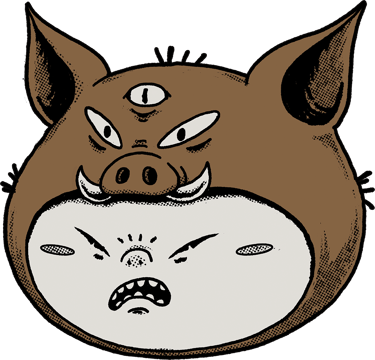The Fascinating World of Japanese Yokai: History and Importance in Japan's Culture
Yokai are supernatural creatures that have been a part of Japanese folklore for centuries. These creatures, often depicted as strange and otherworldly, hold a significant place in Japan's history and continue to captivate people's imaginations today.


Japan is a country rich in folklore and mythology, and one of the most intriguing aspects of its culture is the world of yokai. Yokai are supernatural creatures that have been a part of Japanese folklore for centuries. These creatures, often depicted as strange and otherworldly, hold a significant place in Japan's history and continue to captivate people's imaginations today.
One of the most well-known yokai is the Kitsune, a fox-like creature with the ability to shape-shift. In Japanese folklore, Kitsune are believed to possess intelligence and magical powers. They are often depicted as mischievous tricksters or loyal guardians. The Kitsune is not only a popular character in folktales and literature, but it also holds a special place in Shintoism, where it is considered a messenger of the deity Inari.
Another prominent yokai is the Tengu, a creature with both human and bird-like characteristics. Tengu are known for their martial arts skills and are often portrayed as fearsome warriors. In Japanese folklore, they are associated with mountains and forests and are believed to be protectors of sacred places. The Tengu has had a significant influence on Japanese art and literature, with countless stories and artworks featuring this iconic creature.
The Kappa is a water-dwelling yokai that is often depicted as a humanoid creature with a turtle-like shell and a beak-like mouth. Kappa are known for their mischievous nature and their love for cucumbers. In Japanese folklore, they are believed to be both dangerous and helpful, capable of causing floods or teaching humans valuable lessons. The Kappa's influence can be seen in various aspects of Japanese culture, from traditional artwork to modern popular culture.
The Yuki-onna, or "Snow Woman," is a yokai associated with winter and snowstorms. Yuki-onna are often depicted as beautiful, ethereal women with pale skin and long, flowing hair. In Japanese folklore, they are believed to be spirits of the snow who appear during blizzards. While they can be deadly to those who encounter them, there are also stories of Yuki-onna showing kindness to humans. The Yuki-onna has been a popular subject in Japanese literature and art, symbolizing the beauty and danger of winter.
These are just a few examples of the countless yokai that populate Japanese folklore. Each yokai has its own unique story and significance in Japanese culture. They serve as a reflection of the country's history, beliefs, and fears. From ancient folktales to modern manga and anime, yokai continue to inspire and entertain people of all ages.
